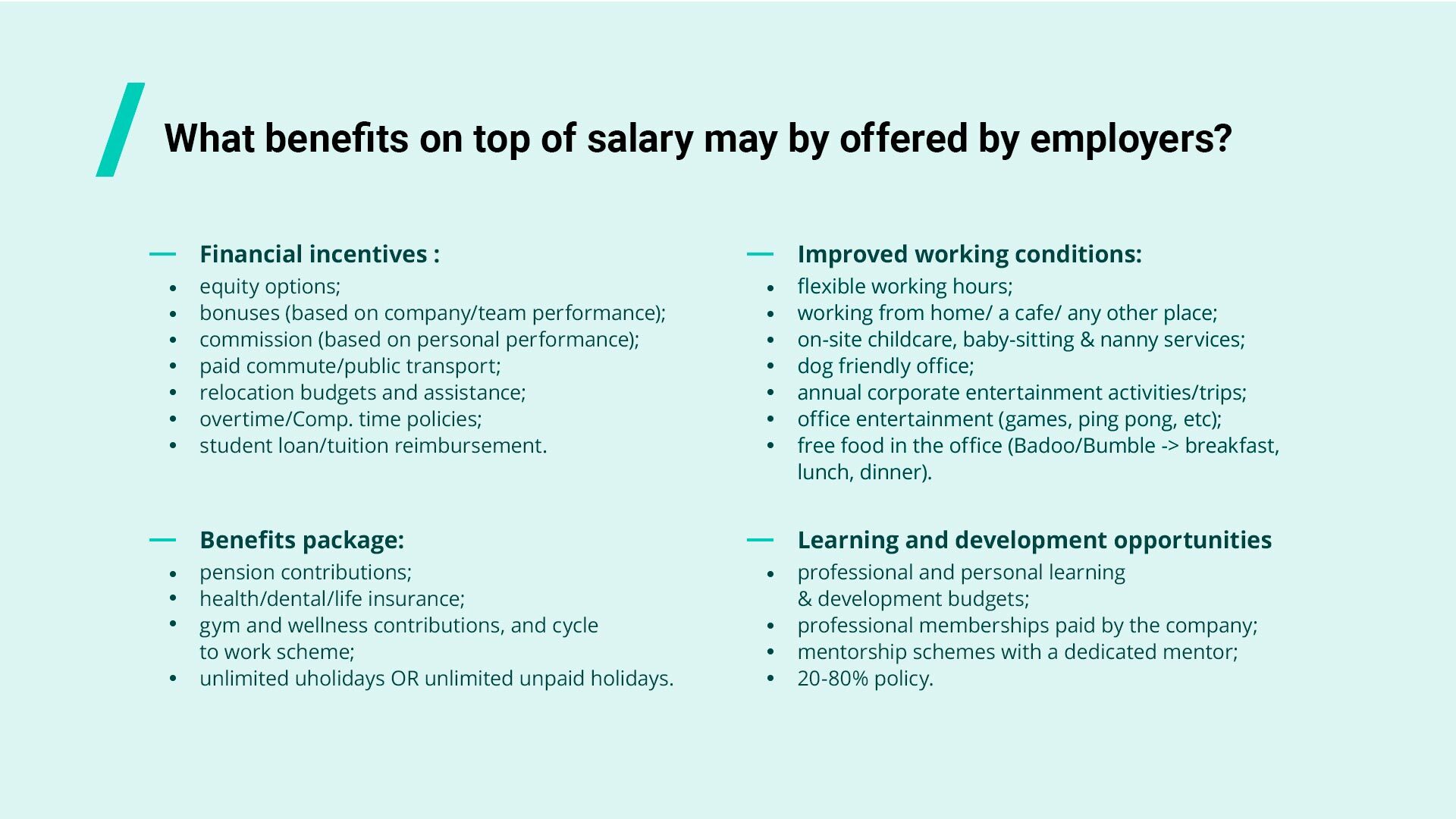It is natural to want to grow and evolve across the course of your career, and it is reasonable to expect that your salary will increase to reflect your new responsibilities and greater experience. But the truth is, salary increases rarely “just happen”, and you often need to ask for a raise to reflect your contribution to your employer.
While negotiating your salary is a necessary task, it can also be a daunting one. More than 50% of people say that they are unwilling to ask for a raise. However, negotiating your salary does not need to be overwhelming if you know what you contribute to your company, its market value, and the best way to approach negotiations.
A successful career is not a game of chance. You equip yourself for the job that you want and pursue the opportunities that allow you to build your experience, gain new skills, and maximize your compensation. While you should always be open to the unexpected, a strategic approach will see you reach your career goals quickly and effectively.
If you need help understanding your preferred industry and how to successfully pursue an effective career path, book a consultation with one of our experts.

In this article, we look at all of these things. It starts with assessing whether you should be asking for a raise based on what you do and its market value. Next it looks at how to make the case for a raise, how to physically make the ask, and what kind of outcomes to expect. Finally, it looks at negotiating a salary that is offered to you, whether it is by your existing company or a new job offer from a different company.
Should You Ask for a Salary Raise?
Before deciding to enter into any kind of salary negotiations, you need to consider whether you are currently in a position to ask for a raise. This will depend on the value of your contribution to your employer, or the potential value of your contribution to a future employer.
You should have a benchmark in hand to make this assessment in the form of the job description and the salary that the company is offering for the completion of those tasks. From here you need to determine whether the company is offering a reasonable salary for the role, whether you are performing above and beyond the responsibilities of that role, and whether you are making a significant additional contribution to your company.
Is the Company Offering a Competitive Salary?
The first thing to consider is whether the company is offering a competitive salary for that job in your industry. Determining this will require some desk research, looking for similar roles and what they pay through investigating job advertisements, LinkedIn, and benchmarking resources such as Glassdoor.

These are some of the best tools available for researching salaries for jobs in Europe and internationally.
When you are making comparisons, remember that while jobs may look similar, a significant number of factors can make a difference to the salary. It is important to ensure that you are looking at comparable roles. Consider the following factors:
- Industry – The industry makes a significant difference to what is considered a reasonable salary. For example, public facing roles in finance and retail may seem to have similar responsibilities while offering very different salaries. This is mainly down to the fact that risk and reward for finance sales tend to be higher than for retail.
- Company – The size and ethos of a company can influence salary. Generally speaking, larger companies have more flexibility to offer higher salaries than small companies. Roles at larger companies also tend to come with more HR and line management responsibilities. The ethos of a company can also make a difference to how they package their salary. For example, one company may offer a high base salary, while another offers a lower base salary but with bonuses and stock options that link salary to performance.
- Geography – Most companies weight their salaries based on where they are located, offering employees that live in large and expensive cities such as New York or London more than staff living in more affordable locations. Increasingly companies are offering universal salaries to better serve remote employees.
Based on these factors, you should be able to determine what is a competitive salary for your role within your industry and what you should consider reasonable compensation.
You may also be able to determine whether your role is worth more than some comparable roles in your industry if it carries additional responsibilities or requires additional skills not normally required by similar roles. For example, you may have additional line management responsibilities or require technical skills, such as mastery of design software, that are not normally required.
Are You Performing Beyond Your Responsibilities?
The next thing to consider is whether your job description is an accurate reflection of what you do. This is not a given, since it is normal for you to take on new responsibilities and build experience over the course of your employment. It is not uncommon for employees’ roles to gradually grow over the course of 6-24 months without anyone actively making note of it.
It is a good idea to keep a list of your responsibilities that you actively update as you are given new tasks. This is useful not only for assessing your changing job description, but also managing your workload. It is normal for newer staff to take on new tasks as they become more experienced and efficient. But it is also common for good employees to be given new responsibilities without considering whether they have capacity. Having an up-to-date list can help you see what tasks you may need to delegate to take on new responsibilities.
If you don’t keep an active list, make a list of all your current work responsibilities and skills and compare it to the lists in your job description. If there are changes, this may suggest that you are delivering above and beyond the job as valued and deserve a pay raise.
Are You Making a Significant Contribution to Your Company?
Even if you are performing within the confines of your job description, you may be making a high-value contribution to your company that justifies either a salary increase or a bonus.
Have you signed a major new client that has made a significant impact on the company’s revenue? Have you implemented new systems that have saved the company time and money and made working more efficient? Have you played an important role in creating a new product that could change the future direction of the company? All of these could represent a case for higher compensation.
When assessing these kinds of contributions it is important to think in terms of “impact” rather than just activity. What significant value have you brought to the company?
Asking for a salary raise can boost your reputation in the office as it shows management that you are a professional who expects to be treated as such and can be a reflection of your engagement and interest in the company and the role. Just make sure you always talk about yur impact to justify why you deserve an increase in your compensation.
Vera Krysanova
HR Business Partner and experienced career consultant | Contact Vera
How to Make Your Case?
Once you have decided that you should ask for a payrise, it is time to make your case. Consider how you are going to justify your request and how much you should ask for. You should prepare your case in writing, even if it is only for your reference.
Consider the following points to build an argument for a higher salary:
- What new tasks and responsibilities have you taken on that are not in your existing job description and why should these be considered “high value”? Remember that not all responsibilities that you take on beyond your job description will be considered “valuable”. If you have taken on low-value additional responsibilities, you should consider how these can be delegated elsewhere.
- What new skills (including soft skills) have you acquired since your salary was last reviewed and what value do they offer to the company? Technical skills, proficiency with specific software, and project management skills tend to be easy to quantify. But skills such as negotiation abilities and team building experience can be equally valuable.
- What significant contributions have you made to the company in terms of increasing revenue or improving productivity? Try to quantify these in real terms such as increased sales, increased income margins, improved engagement, and better return on investment.
- If you think that the company is underpaying for the role, demonstrate what the competitive market salary is. Always make sure that you can refer to more than one competitor. If only one competitor is offering a higher salary, it can be too easy to dismiss it as a “special case”.
With these points clarified, you should be able to prepare your pitch, but you still need to consider how much you are going to ask for.
Why do people tend to be reluctant to ask for a salary raise?
According to our expert Vera Krysanova the main reasons are fear of rejection, undervaluing or doubting your expertise and contribution, a poor relationship with management, or being uncomfortable having the conversation.
Secure a job in Belgium with our help
Our expert career consultants can support you throughout the job search process, from crafting an outstanding CV to preparing you for interviews. Check out our career packages.
How Much Should You Ask For?
The size of an appropriate raise depends a lot on your industry. You can find overall statistics for the United States in 2023 here. If you work for a fast growing start-up, big raises on the back of fast growth aren’t uncommon. If you work for a more established industry, you should expect lower capacity for a salary increase.
The average salary increase for an individual negotiating their salary is currently about 5%, compared to 15% for people changing companies. However, if you can point to major changes in your role or major contributions, it is not unreasonable to ask for a raise of between 10-20%. Anything higher than that will probably require you to demonstrate exceptional circumstances.
Beyond Salary
Before entering negotiations, it is worth remembering that an increase in salary is not the only thing of value that your employer can offer you that has value. You can also negotiate for benefits such as more flexible working hours and conditions, a company car, better health and wellness coverage, more paid holidays, or being part of a bonus scheme. All of these form part of the total value of your pack packet.
It is a good idea to understand what benefits your company offers so that you know what is on and off the negotiating table. You should then consider which of these potential benefits have value to you, and what they are worth to you in lieu of cold hard cash in your pay packet.
This means that if your employer cannot meet your salary expectations, there are still items you can negotiate on to improve the overall value of your salary.

Above are examples of some of the benefits that an employer may be able to offer you as part of your complete pay package.
How to Make the Ask for a Pay Rise?
While you will often hear that moving jobs is the best way to increase your salary quickly, this is not always the case. If you have a good relationship with your superiors and they know the value that you add, they are often willing to improve your salary to keep you at the company.
Creating relationships with your superiors and ensuring they know about your contributions and successes is a long game based on daily engagement that can’t be rushed. You don’t want to be boasting about your achievements in every meeting or in every email, but there are opportune times to bring up what you have been working on.
You can suggest sharing lessons learned from a successful project with colleagues and make sure you list your achievements in regular performance reviews. Don’t be afraid to use the world “I” and take personal ownership when talking about your contribution to the company.
When I was working as an HR Generalist at an IT company, I asked for a pay raise after 1.5 years, explaining that during that time I had gained new skills and started two complex projects. I was now more experienced and the pay raise would motivate me to continue taking on more projects. I was given a pay raise without hesitation.
Vera Krysanova
HR Business Partner and experienced career consultant | Contact Vera
Book the Meeting
You will want to book a personal meeting with your line manager to discuss your salary. This should be organized in a one-to-one meeting or via email. You should make them aware that you want to talk about your prospects within the company at the meeting. They are more likely to respond positively if they have had some time to consider the issue rather than having it “sprung” on them unexpectedly.
The best time to book the meeting depends on a variety of factors. Some companies have a regular salary review cycle, so that is the perfect time to ask. Other companies have a regular performance review process that is also an opportunity for you to highlight your value and ask for a raise. If your company has these cycles in place, it is best to work within them, as this is also when your company is reviewing budgets, resources, and team dynamics.
If you don’t have these kinds of “built-in” opportunities, you can make a dedicated meeting to discuss the subject. The best time to schedule these meetings is when your role has recently changed, you have just completed a successful project that has benefited the company, or your company is setting new goals. These offer a clear context for the ask.
If the company is facing a difficult period, such as a big project that is eating resources or layoffs, it is best to wait for a more opportune time.
Make the Ask
If you have outlined your case, you should be prepared to make your pitch and justify your ask. Remember that this is a professional negotiation, so you should go into the discussion with a professional head and avoid getting overly emotional. Maintaining a professional negotiation demeanor will strengthen your case.
There are a few things to avoid saying when making your case for a raise. First, don’t threaten to quit or say that you have a specific job offer from another company that they need to compete with. Not everyone responds well to this kind of combative approach. In addition, it can make you appear disloyal or disinterested in the company, which can reduce your value in the eyes of your superior.
Also, do not talk about personal reasons why you may need a raise, such as your family circumstances. While you may feel like your employer is your friend, good managers need to make decisions for the good of the company and not affection towards employees. Keep the conversation about the value that you contribute to the company.
Need help? Book a 60-minute call
Ask your career-related questions to an expert. We can advise you on your job search strategy, most suitable job titles for your experience, the hacks of writing a great CV and much more.
Outcomes
After you have made your ask, in most cases, you can expect one of three outcomes.
If you are asking within a normal salary review cycle, your employer may already have an offer on the table for you to consider. This is for you to accept or negotiate, like you would with a new job. Read more about that below.
It is also likely that your superior will tell you that they have heard your case and that they will consider your request. This is normal, since your superior probably needs to consult finance and HR before making you an offer. Depending on the company, it may take several weeks for an official offer to come through. Again, it is for you to consider and negotiate this offer.
Finally, your request could be rejected. You should be provided with feedback on why this is the case. Usually, your manager will point to things that you can do to make yourself eligible for a raise in the future. You can then work together to put together a professional development plan.
If the raise is rejected for factors outside of your control, such as limited budgets at your company, this may be the time to reconsider your future in your current position.

Above is an example of how you can approach salary negotiations when you think you deserve a higher salary offer.
How to Negotiate a Salary Offer?
When you are made a salary offer, either by an existing employer of a new employer, this is not a final offer. This is an opening offer for you to negotiate.
You should make sure that you have a good idea of the market value of a job before going into an interview or a negotiation. This helps you assess exactly how good the offer on the table is, and prepares you if they ask you exactly how much you want.
Generally speaking, you should avoid giving a specific number if a new employer asks you about your salary expectations. You are always at risk of over or underestimating what they intend to offer. But if you have a good idea of the market value, you can reference that and then justify why you would expect a higher offer.
Don’t make a decision on any offer immediately, always say that you intend to take a few days to consider. When you do get back to them, tell them that you are very interested in the job, but would expect a higher level of compensation. You may then make a counter offer a bit higher than your expectation, allowing them to negotiate down to something acceptable.
While exactly how high you should go when making your counter offer depends on circumstances, it is worth noting that the average salary increase when you negotiate your salary with a new employer is 10%. If you make an offer 15-20% higher than what they are offering, this provides space to negotiate.
Remember that the base salary is not the only thing to consider when deciding how good an offer is. There are also factors such as holidays, bonus packages, and share options to weigh. When considering these, you should have a good idea what are must-haves and you are unwilling to budge on, what benefits are of value to you and what “sweeteners” are of no real value, and where your flexibility points are.

Ensure that you know where these lines are for you before entering any salary negotiation.
Ultimately, you need to decide what you are willing to accept and what factors, such as health coverage and holidays, are important to you and make a judgment call.
It’s true, never accept the first offer. Respond to the official email and thank them for their offer and reiterate your interest in the position. You can then share your salary expectation based on your research into what professionals like you in this area are receiving. Provide concrete examples from your skills and experience that qualify you for a higher offer.
Olga Kukushkina
Senior Product Marketing Manager and experienced career consultant | Contact Olga
Final Thoughts
A successful career is not a game of chance. You equip yourself for the job that you want and pursue the opportunities that allow you to build your experience, gain new skills, and maximize your compensation. While you should always be open to the unexpected, a strategic approach will see you reach your career goals quickly and effectively.
If you need help understanding your preferred industry and how to successfully pursue an effective career path, book a consultation with one of our experts.






